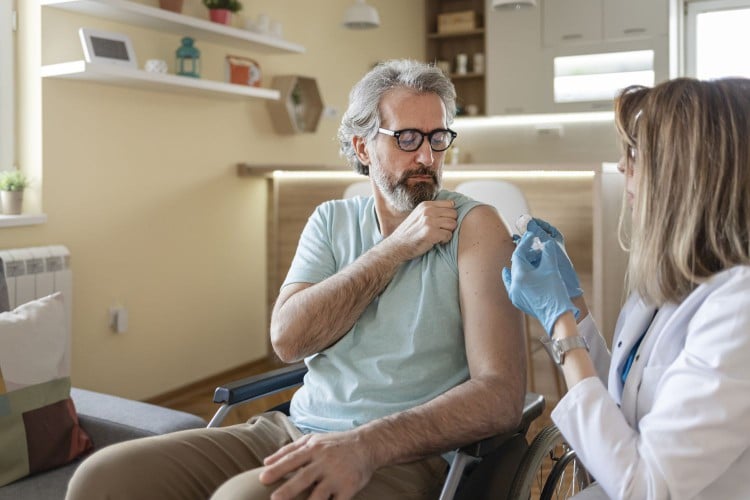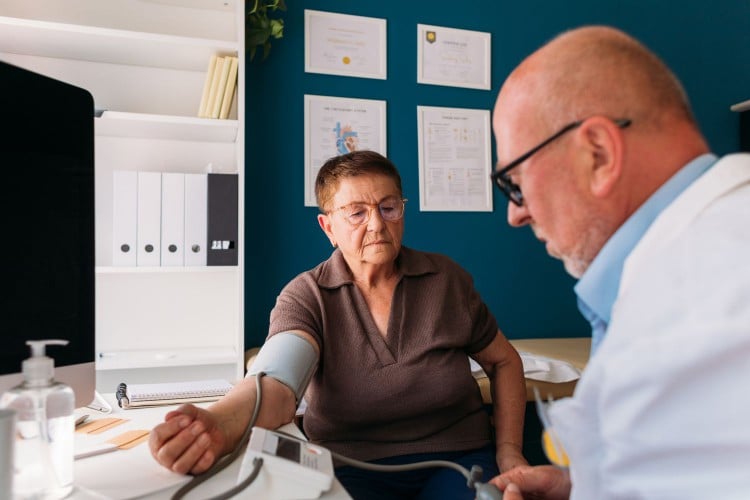
- New research indicates that deep brain stimulation is effective in the long term for people with advanced Parkinson’s disease.
- Deep brain stimulation has proven to be an effective therapy for Parkinson’s disease, but its long-term efficacy compared to medications had been previously unknown.
- There’s no known cure for Parkinson’s, but research is ongoing.
New research out of Germany shows that deep brain stimulation could have a positive impact on the quality of life for people with advanced Parkinson’s disease.
Researchers from the University of Cologne compared two groups of people with Parkinson’s disease: one treated via deep brain stimulation of the subthalamic nucleus and one treated with standard-of-care medication.
After a 5-year follow-up period, researchers reported that the quality of life remained stable in the group treated with deep brain stimulation while the quality of life declined in the group that had received standard-of-care medication.
The findings were
Two experts interviewed by Medical News Today say the research is further proof that deep brain stimulation is an effective therapy for people who’ve been diagnosed with Parkinson’s disease.
Parkinson’s disease and the brain
“We know that the disease affects dopaminergic neurons in the brain, so brain cells that make dopamine are slowly degenerating,” explained Dr. David Charles, a professor and vice chair of neurology and the medical director of Vanderbilt Telehealth at Vanderbilt University Medical Center in Tennessee.
“As for the cause of that degeneration, there are lots of theories out there, but the cause of typical Parkinson’s disease remains a mystery,” said Charles, who was not involved in the study.
Even though there’s no conclusive understanding of the causes of Parkinson’s disease, its origins in the brain mean that deep brain stimulation can be an effective treatment.
Deep brain stimulation was first approved by the U.S. Food and Drug Administration in 1997 and remains a widely used standard of care therapy for people with Parkinson’s disease.
“Therapeutic effectiveness has been well documented and in the United States every major commercial insurance covers it. It’s a tried and true proven therapy that benefits properly selected patients,” Charles told Medical News Today.
Important findings for Parkinson’s disease research
Charles and his colleagues have researched deep brain stimulation for people with early stage Parkinson’s while the study out of Germany compared people with advanced stages of the disease.
“My impression of this report is excellent,” Charles said. “I think they nicely address the limitations of the trial design that they used and so I think that their findings are very helpful to the Parkinson’s community.”
“This is an important, rigorous, and important study,” Langevin, who was not involved in the study, told Medical News Today.
Langevin added that prior studies had proven the effectiveness of deep brain stimulation in comparison to standard-of-care therapy, but a question remained: Would deep brain stimulation maintain its superiority in the long term or would it eventually show diminishing returns?
“This study looked at the outcomes and patient quality of life five years after the surgery,” Langevin explained. “The authors are reporting that quality of life is maintained in the [deep brain stimulation] cohort, but that it worsens in the medical therapy group. The difference in quality of life was linked to better motor performance with [deep brain stimulation], so that patients can perform their activities of daily living.”
Showing support for people with Parkinson’s
Deep brain stimulation may be an effective therapy for people living with Parkinson’s disease, but this doesn’t change the fact that Parkinson’s is a devastating condition.
There’s no known cure and symptoms get progressively worse with time.
A Parkinson’s diagnosis often means that a person may not be able to take part in their usual hobbies or activities, said Langevin. This impacts their independence and makes support from family, friends, and loved ones especially important.
“The patient may need help with basic activities of daily living such as bathing and getting dressed,” said Langevin. “Parkinson’s disease is a life-transforming condition that threatens the patient’s independent living capabilities and quality of life.”
The underlying causes of Parkinson’s disease are shrouded in mystery, but researchers are trying to gain a more nuanced understanding.
“There are lots of different lines of research ongoing and one line that’s super interesting is trying to understand the genetic influences that may predispose someone to Parkinson’s disease. Another area that’s kind of related is gene therapy that could somehow address any finding in the genetics category,” said Charles.
“There’s also cell-based therapy, where we explore whether we could implant cells in the brain that would help people with Parkinson’s,” he added. “For a person with newly diagnosed Parkinson’s, the news is good. We have therapies available for Parkinson’s, and there’s multiple lines of robust research underway.”
Related pages
How sleep quality in your 30s and 40s can impact memory later in life
Share on PinterestResearchers say the quality of sleep in younger years can impact memory in older a

Why Swapping Meat With Plant Protein Can Boost Heart Health
New research found that swapping animal protein for plant-based protein can boost heart health.This

What Is Castor Oil Packing?
Castor oil packing means soaking a fabric (like a washcloth) with castor oil and placing it on your

A New COVID Vaccine Is Here—Do You Really Need Another Shot?
A new round of updated COVID booster shots have been approved for all people six months and older.Th

Should You Take Probiotics With Antibiotics?
Taking probiotics while on antibiotics does not significantly boost beneficial gut bacteria, accordi

COVID Might Help Trigger New-Onset High Blood Pressure
COVID might increase the risk of developing high blood pressure more than influenza, a new study has

